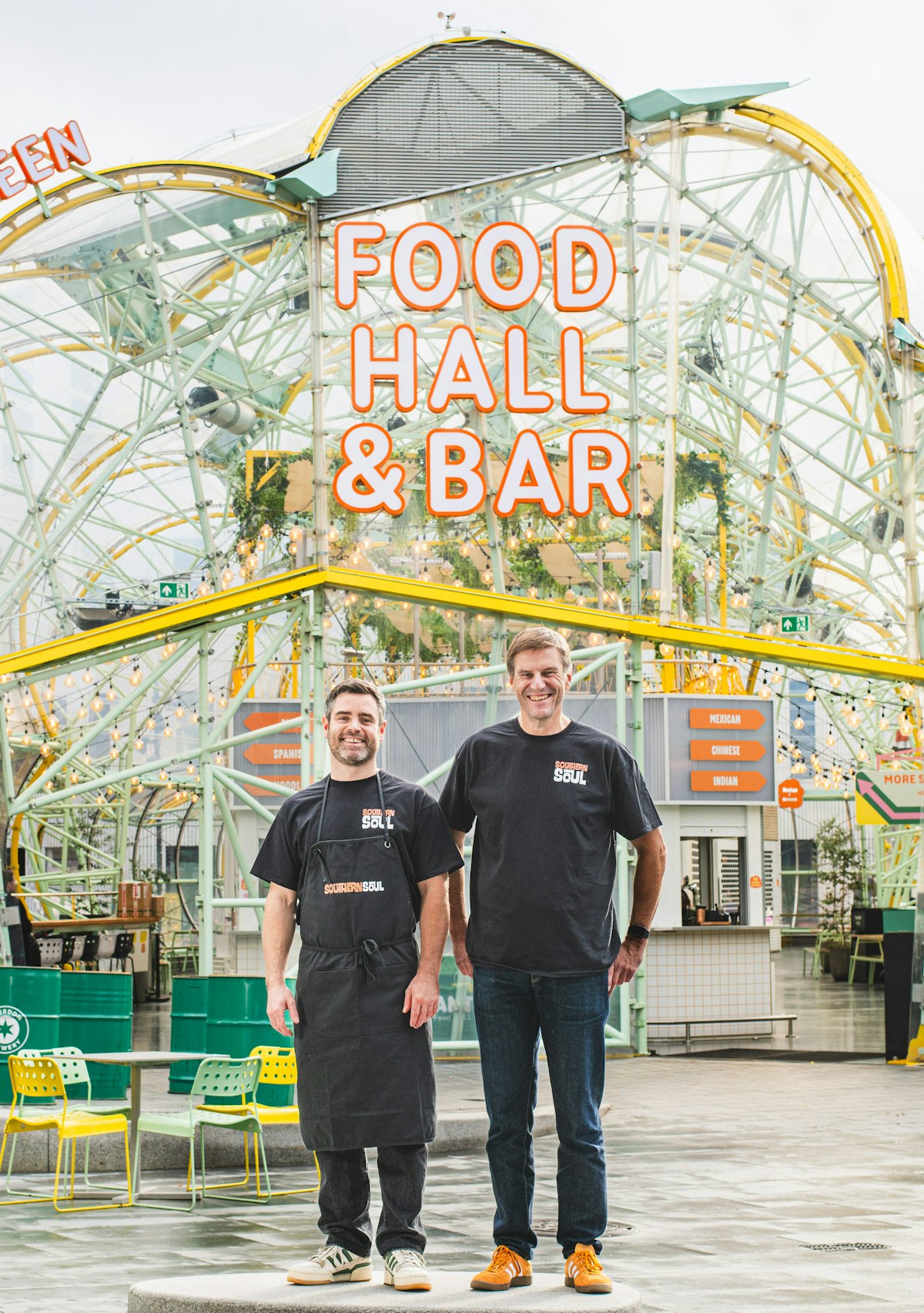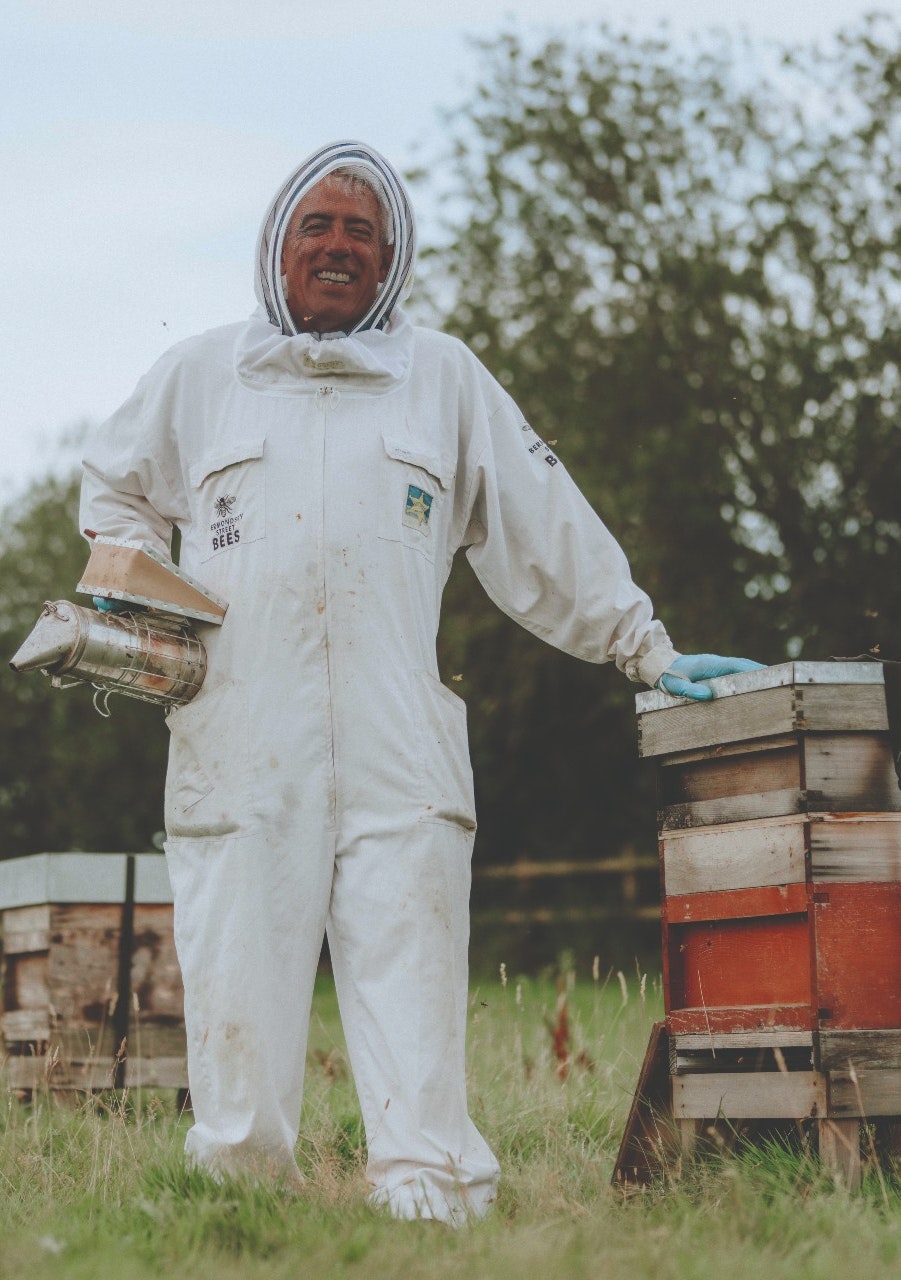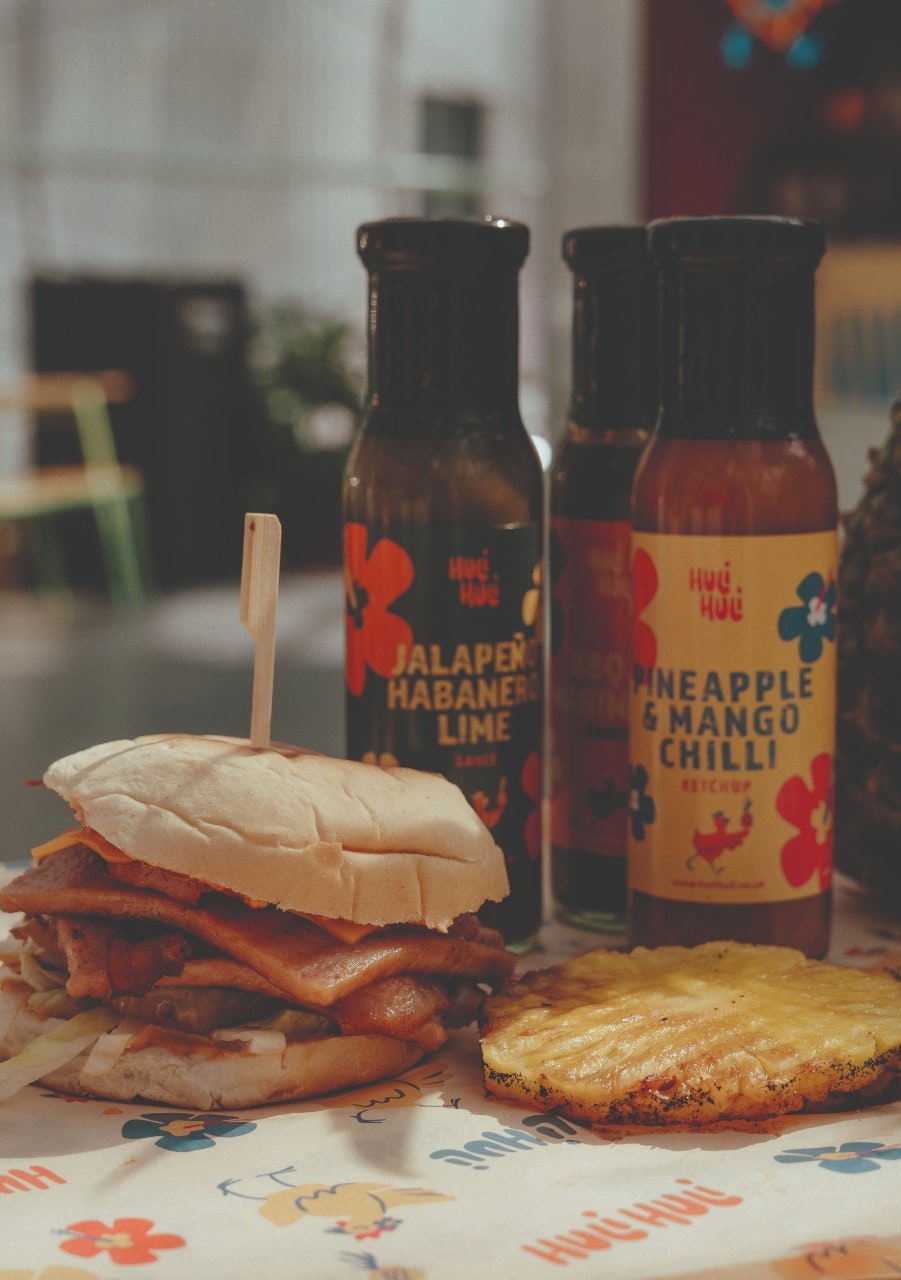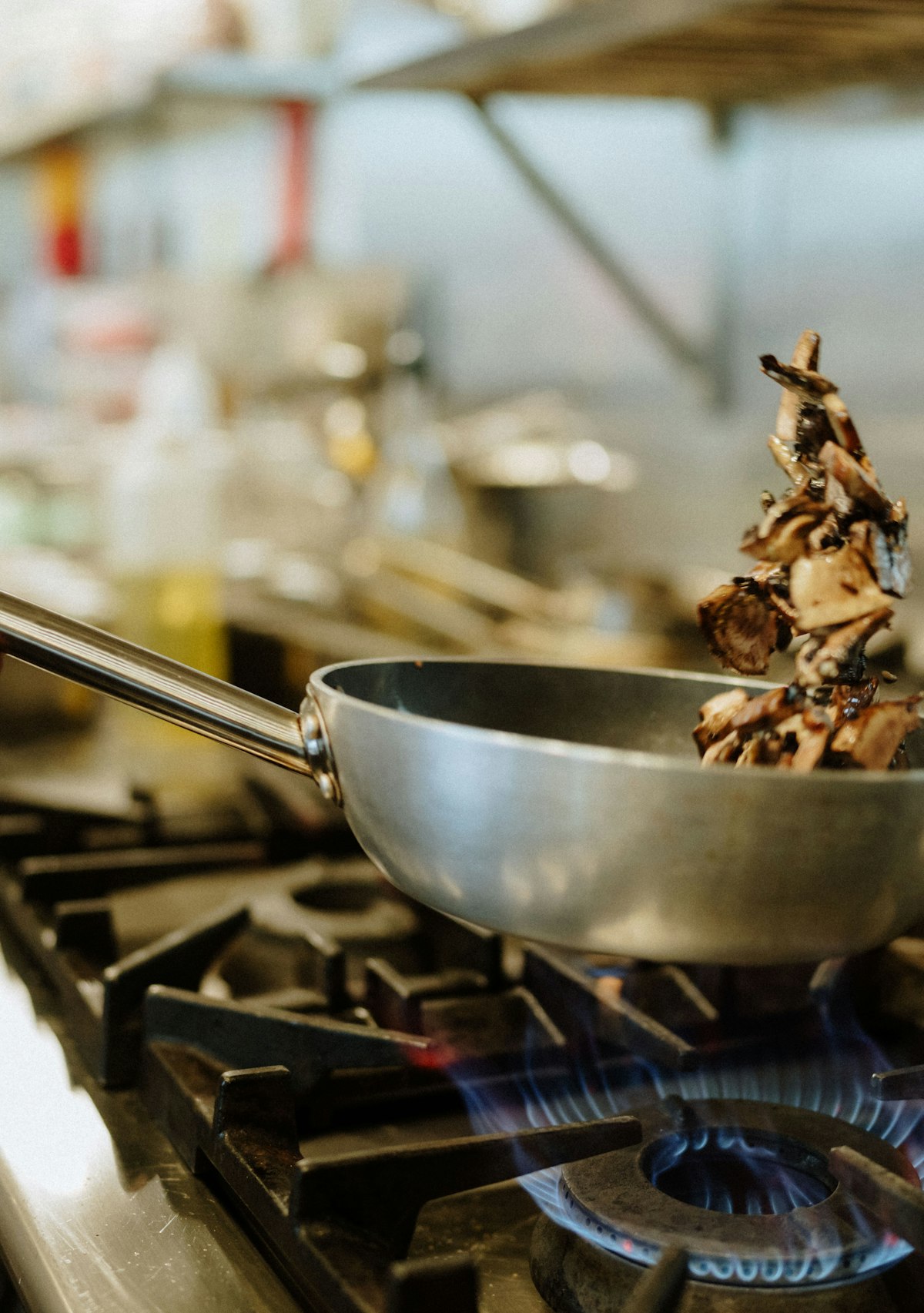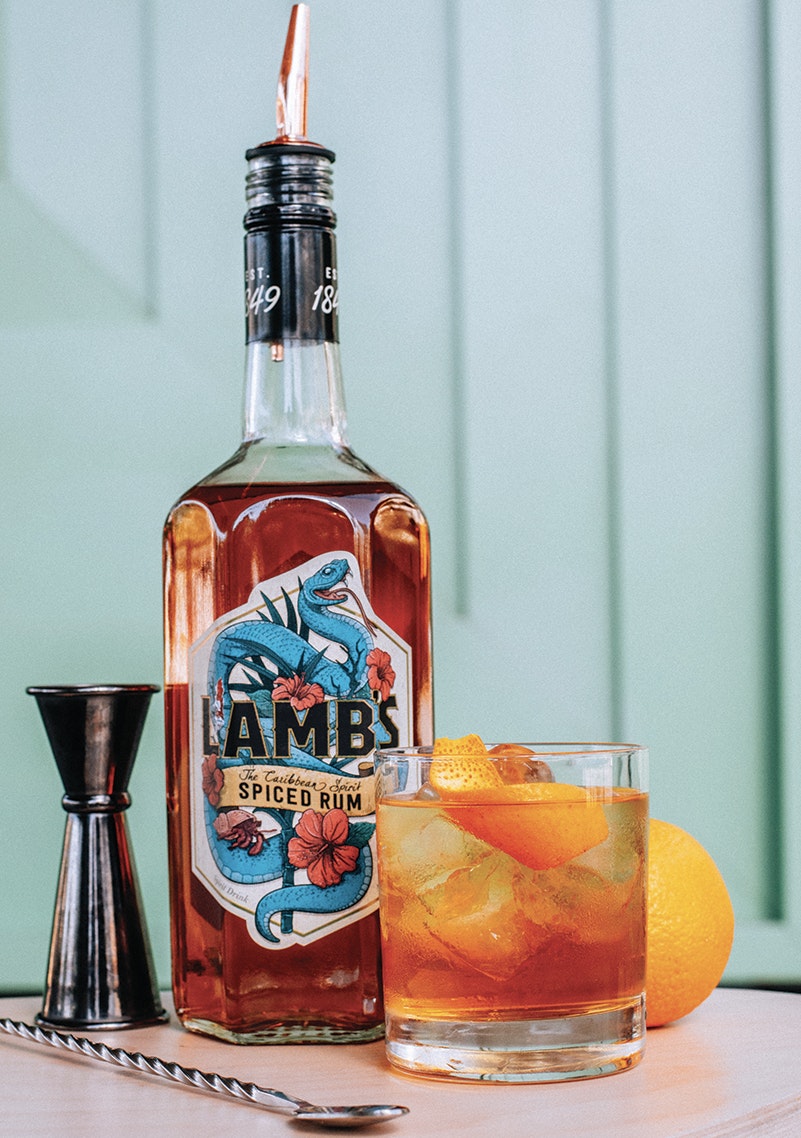
Food for Thought
London isn’t short of great places to grab a bite, but in recent years, many more venues have sprung up that use food to do more than just fill hungry bellies. These organisations are as varied in their work as the people they help, but the common theme that unites them is the link they provide between food and community.
“Food is something that connects us as humans,” says Hearth Bakery founder Maisie Collins. “It’s a universal language we all have to speak. It’s intrinsic to everything: life, community and politics.” While this is an idea that resonates with many food projects across London, the following four exemplify much of the diversity of what’s on offer.
Breadwinners
“What was your first job and how did you get it?” asks Martin Cosarinsky Campos, director of grassroots charity and social enterprise Breadwinners. I tell him it was in a pub kitchen, and I got it via some friends. As I tell him, I can see the point he’s about to make.
“Put yourself in the shoes of a young person who’s claiming asylum in the UK and who arrives unaccompanied. They may not have mastered the language or fully understand what a CV is. Finding that first job is really hard.”
Breadwinners is changing this, helping young unemployed refugees into work through its stalls at London food markets where it sells artisanal bread and baked goods. To date, its programmes have helped over 315 young refugees and people seeking asylum into different stages of employment.
Why bread? “Bread is in every home and every culture,” says Campos. “It’s something that unites and transcends. It’s a way to connect people each and every day through a household item.” It helps that Breadwinners’ take on this household item is delicious.
The Vermont sourdough (a white loaf with added rye) is the best-seller, but there are also classic baguettes and focaccias, indulgent loaves like the sourdough with Kalamata olives and pastries, from doorstep-sized cinnamon swirls to flaky pains au chocolat.
Behind the baking lies a mapped-out employment framework, delivered through three programmes: Risers provides work experience on Breadwinners’ stalls for young people seeking asylum, coupled with mentoring. When they gain refugee status and have the right to work, many return for the Breadwinners Programme, which offers a paid job managing a stall and support to find other employment. The Proofers programme trains people to help manage Breadwinners’ wholesale operation through customer service and IT roles.
“Our programmes are just the first step,” says Campos. “People have a wide variety of dreams, so we support them with transferable skills they can use in any future job.”
You can find Breadwinners’ delectable baked goods at markets across London, including every Saturday and Sunday at Greenwich Peninsula’s very own weekend market.
Fat Macy's
Fat Macy’s came to life in 2016 when founding director Meg Doherty was working at the Tottenham Lane YMCA in Crouch End (‘Macy’ is an anagram of YMCA). “The name came from some of our trainees at the hostel,” says co-founder and business director Nathalie Moukarzel. “There was a running joke amongst them that you get fat when you’re living in a hostel, because the food can be heavy. The name stuck… People initially think we sell junk food.”
But junk food isn’t on the menu at Fat Macy’s catering service, nor at Sohaila, the project’s bricks-and-mortar restaurant in Shoreditch. Instead they serve Lebanese-inspired dishes like fattoush, beetroot borani with walnuts and dill, and pumpkin with pickled radicchio and dukkah.
Some staff in both businesses are facing homelessness and living in temporary accommodation, and have volunteered on a 200-hour training programme to gain skills and work experience. In return they apply for housing deposit grants from the business after the programme.
“Meg saw a need for people to be working with food as a way to learn new skills and build relationships,” says Moukarzel, “but she also saw the difficulties people were in by not being able to save up for their own private accommodation or move out of hostels.”
Lebanese-style food was chosen due to the relative accessibility and low cost of key ingredients, “plus, it’s easy to teach someone to make some of those mezze-style plates,” says Moukarzel. “The other wonderful thing about that cuisine is that it encourages sharing and the idea of community, which are part of our ethos.”
Long-term, the plan is to expand outside of London, enabling more trainees to enrol. The dream goal, however, is to acquire a site with enough space for a vineyard (to produce natural wine) and growing produce, letting trainees go deeper into cultivation knowledge. “It’s not a next-year goal, but it’s something we can work towards,” says Moukarzel, “giving people the space and skills to do beautiful, incredible things.”
Hearth Bakery
Life wasn’t great for most people in Mediaeval times, but they did have a few progressive ideas to help people out, including the communal bread oven. These public ‘bake houses’ allowed locals to bake bread using a brick-built oven, a tradition that continues today at Hearth Bakery in Hackney Wick, whose name and ethos were inspired by these community-driven, hearth-style ovens.
Once a month, Hearth invites people to use its ovens and kitchen space to prepare and cook food, with a trained chef on-hand for guidance. Initially, the scheme was aimed at home bakers and micro-bakeries, but soon expanded out of necessity. “When the war [in Ukraine] broke out and the cost of living became unbearable for so many people, it became apparent there was more we could do,” explains founder and head baker Maisie Collins. “It’s an opportunity for people who can’t afford to use their oven at home, or who live in accommodation without a kitchen, to make fresh food, essentially bulk-cooking their own
ready meals.”
It’s a practice that exemplifies Hearth’s approach to food, creating a fairer and more transparent system that’s accessible to all, and using agroecological principles to make a positive impact.
Another strand is about to be added with the launch of Hearth’s trainee programme. Traineeships pay London Living Wage and support the local community (by tackling unemployment among young people in Hackney and surrounding boroughs) and the hospitality industry, plugging a little of the gap in hospitality employment left by Brexit and the pandemic.
Before candidates are supported in finding a job, training is given on a range of hospitality positions, from front of house to logistics to baking. “Bakeries are an internationally and culturally diverse meeting point,” says Collins. “They’re natural, street-facing community hubs. You can track our development as humans alongside the history of wheat and bread.”
Just as much thought is given to preparing the treats on Hearth’s shelves. A “circular economy kitchen” ensures every item is maximised before going to compost, neatly demonstrated by the vegan galette and kimchi cheddar breakfast pastries. The kimchi is made from fermented vegetable scraps, while the galette’s frangipane is mixed with bran to make ‘brangipan’, a delicious ingredient that uses nutritious by-products from the milling process. Truly using their loaves to the fullest.
The Clink
Sometimes, food and community come together in unexpected ways. In 2009, The Clink opened at HM Prison High Down in Surrey, making it the UK’s first public restaurant to open within a prison. With food served and prepared by prisoners – alongside ‘chef trainers’ – The Clink surprised some people and delighted many more with its elevated take on British and European classics. Think spiced, poached pear with almond biscotti and pear sorbet or garden squash ravioli with hazelnut pesto.
But as popular as the food was (and still is), the restaurant wasn’t built solely to feed people. Its bolder aim is to help lower reoffending rates, through training programmes that help prisoners gain qualifications in hospitality and horticulture.
“Our projects operate in real-life working environments that don’t look or feel like prison,” says The Clink’s Gemma Slater, “so our students get a realistic opportunity to see what those environments will be like after prison.”
Prisoners must meet certain requirements to enrol and are then interviewed before being invited to work in the kitchen or in front-of-house roles. It’s a simple setup, but fairly revolutionary in its aims and achievements. “We trained over 500 people in prison by the end of 2022,” says Slater, “and 70% of all Clink graduates released that year went into employment, compared with just 17% of the prison population overall.”
It’s a system that’s worked well for everyone involved. Since launching, there are now three Clink restaurants, including one in HMP Brixton (the other in HMP Styal, the first to open in a women’s prison), two garden projects (where qualifications involve growing fruit, vegetables and herbs), a catering business, a bakery at HMP Brixton to provide pâtissier training and Clink Kitchens training programmes rolling out across 70 prisons in England and Wales.
Despite this expansion, the project’s mission remains the same: “change attitudes, transform lives and create a second chance for people who are in prison.” There’s clearly much that other food projects for social good can learn from The Clink, but perhaps the most compelling lesson is a more universal one. “Understanding that prison is a cross-section of society and anyone can find themselves in difficult situations, but by working together to change people’s lives, we can prevent future victims and ultimately reduce reoffending.”

